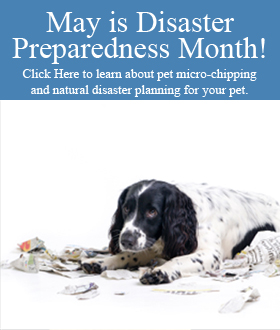Emergencies happen in veterinary medicine just as they do in human medicine. Unfortunately, some are due to the honest attempts by an owner to help their pets. “Mo” is an example of such a case. He is a 5-year-old cat who had fleas. He was constantly scratching and itching. His owner went to the local pet store and bought a pour-on type product to kill fleas, she thought would be safe for him. Unfortunately she didn’t read the label closely enough since it was only for dogs 30 pounds and over. She put one of the tubes on his skin then left to run some errands. By the time she got home she found Mo laying on his side semi-comatose and having what she described as convulsions. She immediately scooped him up and rushed him to our hospital. “Mo” came to our clinic unable to stand, drooling excessively, his eyes were dilated, he was semi-conscious and dehydrated and had tremors affecting his whole body. These symptoms, combined with the owner’s description of the flea product she used, immediately tipped the veterinarian that this cat was suffering from Permethrin Toxicity. After a quick physical exam, we started him on intravenous fluids and medication for the tremors. We also sent some blood work into the laboratory to see if his organs, electrolytes, red blood cells, white bloods cells and platelets were normal or if we needed to worry about those too. He was given a bath in attempt to wash off the Permethrin to lessen the exposure. In 12 hours Mo’s tremors subsided a little and he was ready to eat some canned cat food with the technician’s help. He stayed in the hospital for two days and two nights before he was stable enough to go home. Mo made a full recovery in about five days. He was a very lucky cat! Ten percent of cats treated with Permethrin flea products don’t respond to treatment. Cats arc very unique animals and cannot tolerate many medications dogs can. Please, if you have a flea problem and want to treat your pets, be sure to first contact your veterinarian for advice on the safest and most effective products.
(This was an actual case history from a local veterinary clinic actively affiliated will: the Hillsborough Animal Health Foundation.)





































